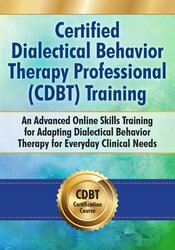Outline
<strong>Understand the Legal System</strong><br /><ul>
<li>Statutes</li>
<li>Rules and regulations</li>
<li>Case law</li>
<li>Finding the law</li></ul>
<strong>Legal Exposure</strong><br /><ul>
<li>Criminal liability </li>
<li>Civil liability </li>
<li>Licensing complaints </li>
<li>Organization complaints </li></ul>
<strong>Establish the Treatment Relationship</strong><br /><ul>
<li>The professional relationship</li>
<li>Use of and reliance upon written consent forms</li></ul>
<strong>Record-Keeping Practices</strong><br /><ul>
<li>Record-keeping regulations</li>
<li>Items which constitute the record, personal notes vs. charting, raw data, computer printouts and third-party records</li>
<li>Access to records by written requests, subpoenas and court orders</li></ul>
<strong>Telehealth </strong><br /><ul>
<li>Authority to practice in an electronic fashion </li>
<li>General and specific rules </li>
<li>Geography </li></ul>
<strong>The Ethics of Duty to Warn</strong><br /><ul>
<li>Duty to warn potential third-party victims</li>
<li>Review of specific Tennessee case law governing danger to others</li>
<li>A clinical approach to the duty to protect</li></ul>
<strong>Treatment of Minors</strong><br /><ul>
<li>Age of majority</li>
<li>Consent to treatment and access to records</li>
<li>Clinical implications in the treatment of the older adolescent</li>
<li>Treatment of minors in situations of family separation and divorce</li></ul>
<strong>Non-Sexual Boundary Violations</strong><br /><ul>
<li>Email correspondence and cell phone contacts</li>
<li>Professional contacts with attorneys and the legal profession</li>
<li>In-court expert testimony</li></ul>



























